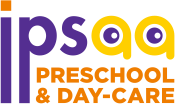<span style=”font-weight: 400;”>Choosing the right playschool for your child is an important decision that can greatly impact their early development and learning journey. As a parent, you want to ensure that your little one is in a safe, nurturing, and stimulating environment. Visiting daycare centers and asking pertinent questions is the best way to gauge if a playschool aligns with your child’s needs and your family’s values. In this guide, we will walk you through some essential questions to ask when visiting a playschool, ensuring you make an informed decision that sets your child up for success.</span>
<h2><strong>What is the Staff-to-Child Ratio?</strong></h2>
<span style=”font-weight: 400;”>One of the first questions to ask during your playschool visits is about the staff-to-child ratio. This ratio directly impacts the attention and care your child will receive while at the daycare. A lower staff-to-child ratio ensures that each child gets personalized attention, fostering their emotional and intellectual growth. Aim for a center with a ratio that enables teachers to focus on individual children’s needs.</span>
<h2><strong>Are the Teachers Qualified and Certified?</strong></h2>
<span style=”font-weight: 400;”>A playschool’s teachers play a vital role in shaping your child’s early education. Inquire about the qualifications and certifications of the teachers at the center. Look for early childhood education credentials, as well as any additional training or workshops they may have attended. Knowledgeable and trained teachers can create an engaging and supportive learning environment.</span>
<h2><strong>What is the Playschool’s Curriculum?</strong></h2>
<span style=”font-weight: 400;”>Understanding the playschool’s curriculum is crucial to determining if it aligns with your child’s developmental needs and educational goals. A well-structured curriculum should include a balance of play-based learning and age-appropriate activities to foster creativity, social skills, and cognitive development. Inquire about how they integrate play into the learning process and how they promote essential skills like language, motor, and cognitive skills.</span>
<h2><strong>How Does the Center Handle Safety and Security?</strong></h2>
<span style=”font-weight: 400;”>Safety should be a top priority for any playschool. During your visit, observe the safety measures in place, such as child-proofing, secure entry and exit points, and a well-maintained environment. Inquire about their emergency protocols and staff training in case of accidents or incidents. Ensuring your child’s safety gives you peace of mind while they’re away from home.</span>
<h2><strong>What Are the Meal and Snack Options?</strong></h2>
<span style=”font-weight: 400;”>Nutrition is crucial for your child’s growth and development. Inquire about the meal plans and snack options offered by the playschool. A balanced and healthy diet should be a part of their daily routine. If your child has specific dietary requirements or allergies, discuss how the center accommodates these needs.</span>
<h2><strong>How Do They Handle Discipline and Behavior?</strong></h2>
<span style=”font-weight: 400;”>Understanding how the playschool manages discipline and behavior is important to ensure your child’s emotional well-being. Inquire about their approach to discipline, how they handle conflicts between children, and how they promote positive behavior. A nurturing and positive discipline approach fosters a supportive environment for children to learn and grow.</span>
<h2><strong>What Extracurricular Activities are Offered?</strong></h2>
<span style=”font-weight: 400;”>Extracurricular activities are a great way to enhance your child’s overall development and provide them with diverse learning experiences. Inquire about any additional activities or programs offered by the playschool, such as arts and crafts, music, dance, or sports. These activities can contribute to your child’s social, emotional, and physical development.</span>
<h2><strong>How Do They Communicate with Parents?</strong></h2>
<span style=”font-weight: 400;”>Open communication between parents and playschool staff is essential for a successful partnership. Ask about the methods of communication used by the center, such as daily reports, newsletters, or parent-teacher conferences. Staying informed about your child’s progress and daily activities helps you actively participate in their learning journey.</span>
<h2><strong>Is the Playschool Accredited or Licensed?</strong></h2>
<span style=”font-weight: 400;”>Playschools that are accredited or licensed have met specific standards of quality and safety. Inquire about the center’s accreditation or licensing to ensure they comply with state regulations and best practices in early childhood education.</span>
<h2><span style=”font-weight: 400;”><strong>Conclusion</strong>:</span></h2>
<span style=”font-weight: 400;”>Choosing the right playschool for your child is a decision that requires careful consideration. By asking these essential questions during your visits, you can ensure that the daycare center aligns with your child’s developmental needs and provides a safe, nurturing, and stimulating environment. Remember to look for a playschool with a balanced curriculum, qualified teachers, a strong emphasis on play-based learning, and a commitment to your child’s overall well-being. With the right playschool, you can lay a strong foundation for your child’s educational journey and foster their love for learning.</span>
<span style=”font-weight: 400;”>Choosing the right playschool for your child may seem like a daunting task, but let’s make it easy for you. If you’re looking for a playschool that ticks all the essential boxes and answers all your questions, look no further than Ipsaa. Ipsaa is a leading playschool that prioritizes the well-being and development of your child.</span>
<span style=”font-weight: 400;”>Choosing Ipsaa as your child’s playschool means giving them the best possible start in their learning journey. To learn more about Ipsaa and discover how they can nurture your child’s potential, visit their website at </span><a href=”https://ipsaa.in/”><span style=”font-weight: 400;”>https://ipsaa.in/</span></a><span style=”font-weight: 400;”>. </span>

